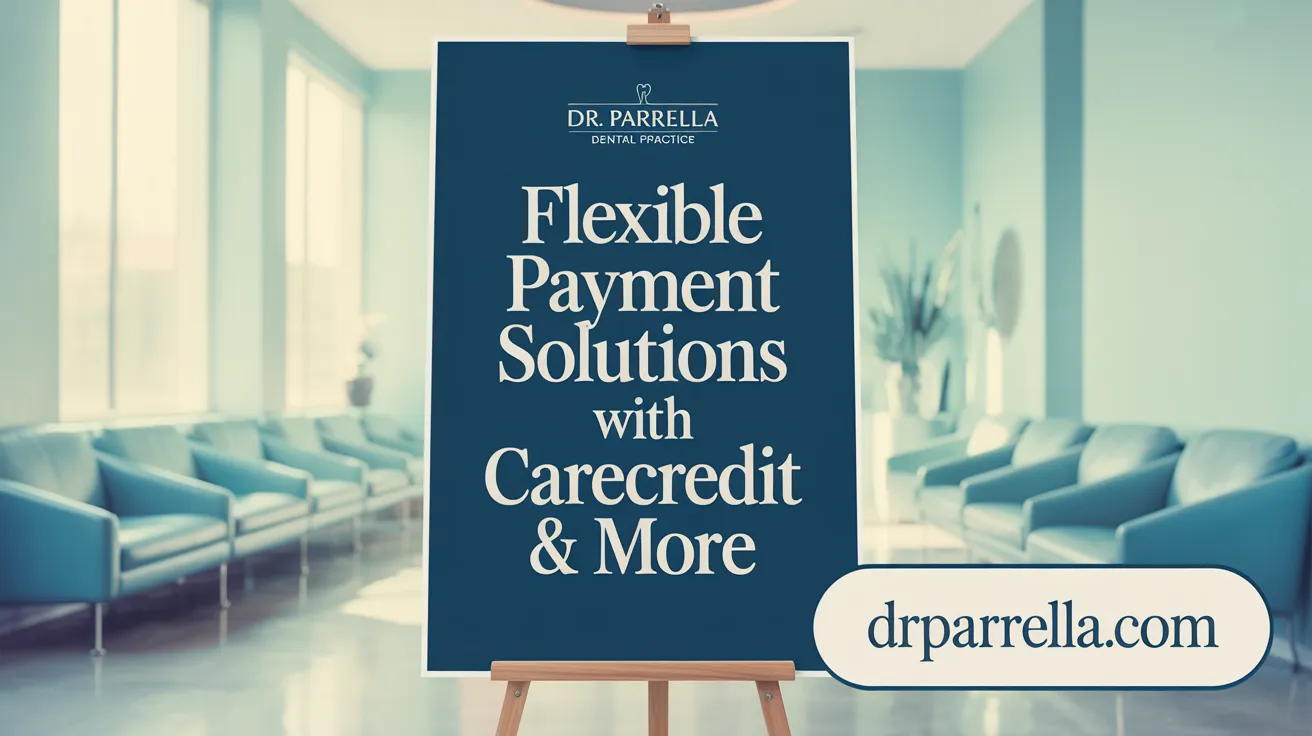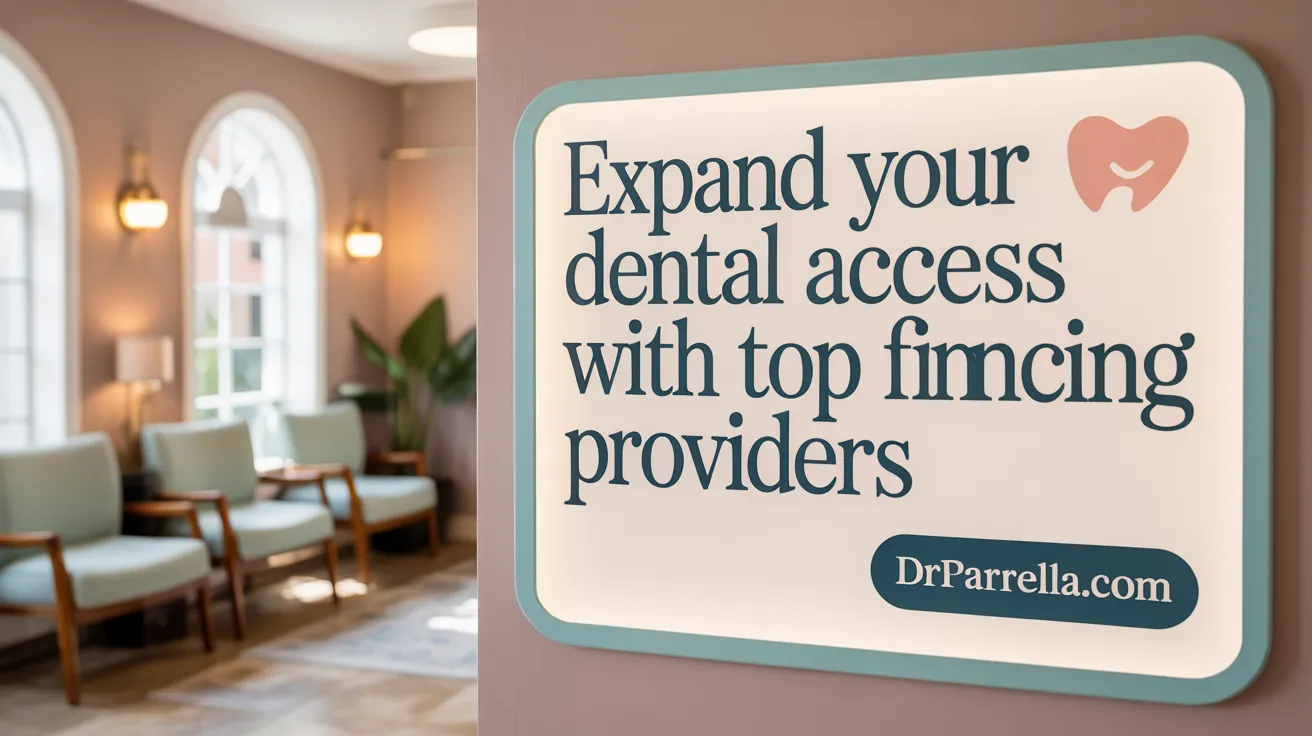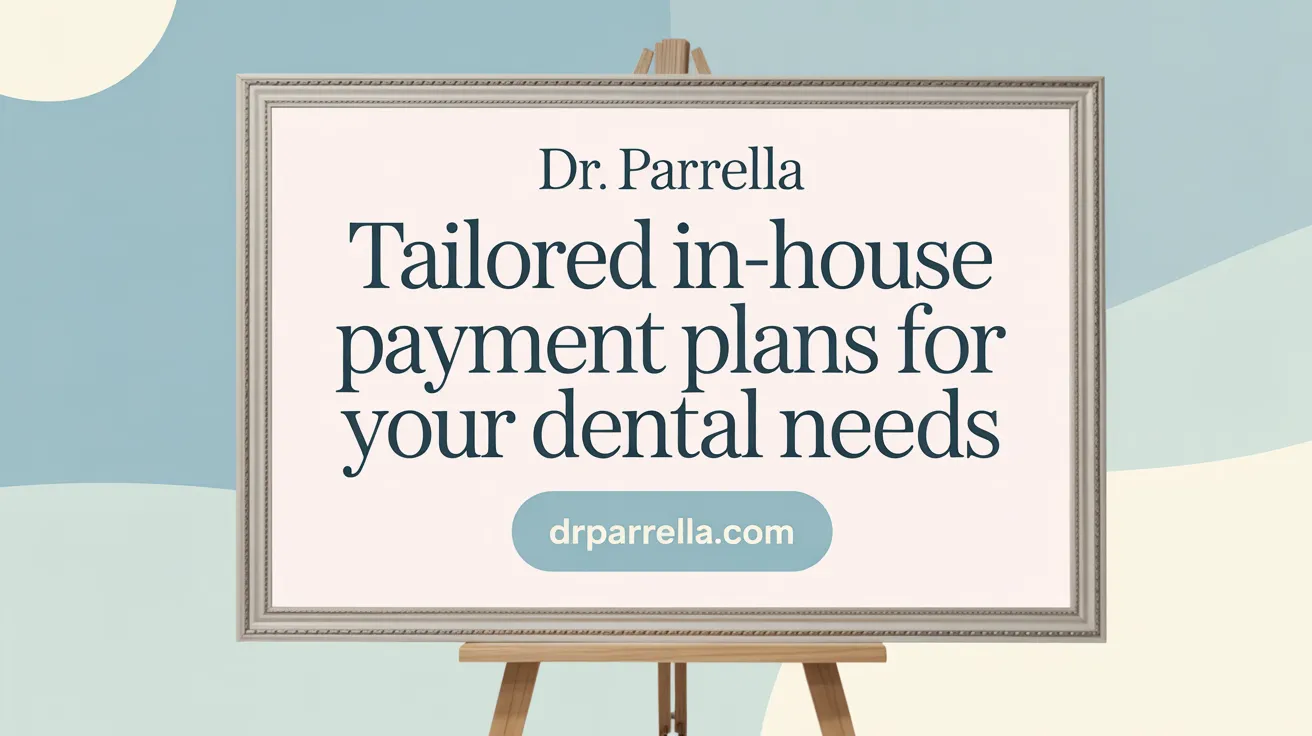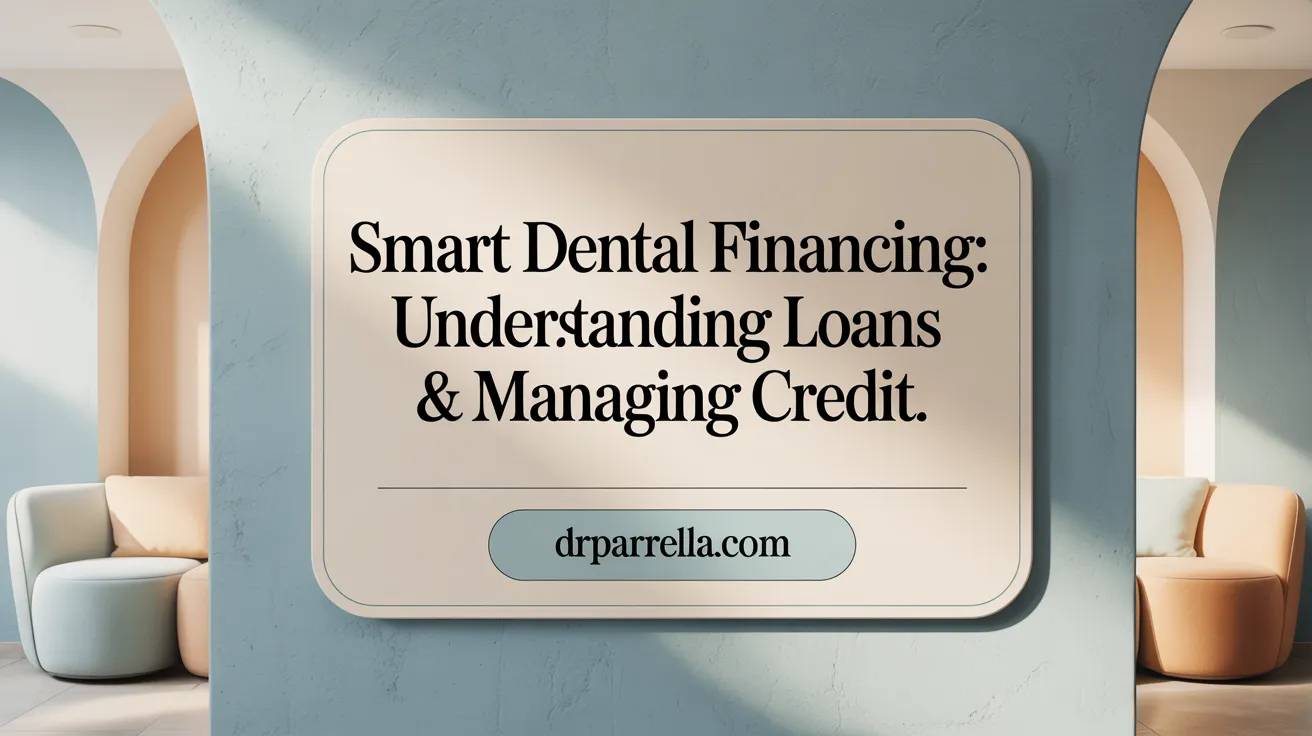Understanding the Need for Flexible Dental Payment Options
Dental care is essential but often comes with significant upfront costs, causing many patients to delay or forego necessary treatments. Fortunately, a variety of flexible payment options exist to help patients manage these expenses, making dental treatments more accessible and affordable. This article explores the range of financing solutions available, including credit cards, loans, in-house plans, and savings programs, aiming to empower patients to find payment methods that fit their budgets and needs.
Comprehensive Dental Credit Card Solutions: CareCredit and Beyond

What is CareCredit and How Does It Help With Dental Payments?
CareCredit is a health and wellness credit card issued by Synchrony Bank credit card, designed to help patients manage dental care costs. It offers flexible dental financing options allowing users to pay for various treatments over time, which eases the burden of large upfront dental expenses. Accepted at over 270,000 healthcare locations nationwide, CareCredit enables patients to access necessary dental procedures covered without delay.
Which Dental Treatments Can Be Financed With CareCredit?
This credit card covers a wide spectrum of dental procedures, including preventive exams, fillings, crowns, root canals, implants, braces, veneers, and teeth whitening. It supports general, restorative, and cosmetic dentistry, making it a versatile financial tool for many dental needs.
What Are the Application and Approval Requirements for CareCredit?
Patients can conveniently prequalify for CareCredit online without affecting their credit score. Final approval is contingent on credit approval for dental financing and meeting eligibility standards. This transparent process helps patients understand their dental financing options before committing.
What Distinguishes CareCredit From Other Dental Financing Options?
CareCredit stands out due to its extensive CareCredit provider network of over 270,000 provider locations, no annual fees, and a CareCredit rewards program for eligible cardholders. It offers CareCredit special financing plans, such as interest-free periods for qualifying purchases, enhancing affordability. Additionally, digital tools like dental care cost calculators and location finders assist patients in planning and managing their dental expenses effectively.
Comparison With Similar Third-Party Financing Providers
While other providers like Sunbit, LendingClub, and Proceed Finance also offer patient financing, CareCredit’s long-standing relationship with Synchrony Bank, broad acceptance, and comprehensive benefits package including rewards and flexible promotional options, make it a preferred choice for many patients seeking dental payment plans.
By leveraging CareCredit, patients gain access to extensive dental financing promotional plans for dental care, backed by transparent processes and widely accepted at dental practices across the country. This makes it a reliable choice for managing dental expenses with confidence and ease.
Third-Party Financing Companies Enhancing Access to Dental Care

Which third-party financing providers are commonly used for dental payments?
Popular third-party financing options for dental payments include Sunbit, LendingClub Patient Solutions, Proceed Finance, Cherry, and ONEderful. Each offers distinct benefits such as quick online applications, high approval rates, flexible loan terms, and interest-free payment plans to help patients manage their dental expenses.
How do these providers affect patient access to dental treatment?
These financing companies enable patients to receive dental care immediately by spreading out payments over time. With options for little to no interest, they reduce the financial barrier for both necessary and elective procedures, improving patient access to treatment.
What are the key characteristics of Sunbit financing?
Sunbit boasts an approval rate of about 87% and offers rapid application processes without hard credit checks, often completed within seconds. Patients can select flexible repayment plans of up to 72 months. Dental practices benefit from prompt fund transfers, enhancing cash flow. Learn more about Sunbit financing benefits.
How does Cherry financing work for dental patients and practices?
Cherry provides diverse payment plans, ranging from interest-free installments over 6 weeks to extended terms up to 60 months with qualifying 0% APR. The application takes less than a minute without hard credit checks and offers instant funding to providers. This approach significantly increases case acceptance and transaction values for dental offices. More details can be found at Cherry Dental Financing.
These third-party financing companies collectively improve affordability and accessibility of dental care, while also ensuring timely payments and increased financial stability for dental practices.
In-House Financing and Payment Plans: Customizing Patient Affordability

What are the benefits of in-house dental financing?
In-house dental financing offers patients flexible approval processes with fewer credit hurdles compared to third-party lenders. More importantly, it provides personalized payment plans tailored to individual financial situations, allowing patients to manage treatment costs conveniently. Working directly with their dental provider enhances trust and smooth communication, making patients more comfortable discussing financial matters and treatment options.
How do dental offices implement and manage in-house financing programs?
Dental practices develop clear, written policies outlining their financing options to ensure consistency and transparency. Staff receive thorough training to communicate these options effectively and comply with legal regulations like the Truth in Lending Act. Payment plans are customized based on each patient’s budget, enabling practices to increase case acceptance and shorten decision-making times. This proactive approach promotes responsible lending and clear terms.
How do in-house financing plans affect patient treatment decisions?
By reducing the financial burden at the time of treatment, flexible in-house plans empower patients to proceed with necessary care without delay. This accessibility prevents postponement of procedures due to cost concerns, supporting better oral health outcomes through timely intervention. Patients benefit from affordable dental payment options and dental payment plans.
Combining in-house financing with insurance and other payment options
In-house financing often complements insurance coverage by covering deductibles, co-pays, or treatments not included in plans. When paired with external financing tools or dental savings plans, it broadens affordability options, ensuring patients have multiple pathways to access dental care. This combination maximizes insurance benefits while keeping payments manageable. Additional options such as CareCredit and Sunbit financing offer further flexibility for dental procedures.
In summary, in-house dental financing enhances patient affordability through personalized, compliant, and flexible payment solutions, improving treatment acceptance and timely care.
Alternative Payment Methods: Savings Plans, HSAs, FSAs, and Insurance Coordination

What are dental savings plans and how do they help patients?
Dental savings plans operate as membership programs that offer discounted rates on a variety of dental treatments. They are particularly beneficial as they do not impose annual spending caps, waiting periods, or exclude preexisting conditions. This means patients can access preventive care like cleanings as well as cosmetic services such as whitening at a reduced cost, making dental care more affordable and predictable. Learn more about Dental Savings Plans and dental savings plans.
How do HSAs and FSAs facilitate dental payments?
Health Savings Accounts (HSAs) and Flexible Spending Accounts (FSAs) provide a tax-advantaged way for patients to pay for dental expenses. The funds contributed to these accounts are pre-tax, effectively lowering the patient's taxable income while setting aside money specifically for medical and dental costs. These accounts can complement insurance coverage or dental financing by helping patients manage out-of-pocket expenses more efficiently. See payment methods including Health Savings Accounts (HSA) and Flexible Spending Accounts (FSA) and dental payment plans with FSAs and HSAs for dental expenses.
What support do dental offices provide regarding insurance and claims?
Dental practices typically assist patients by evaluating their insurance plans to identify coverages, filing claims on their behalf, and advising them on managing deductibles and co-payments due at the time of service. While the office can help minimize out-of-pocket costs, patients are advised to independently review their insurance details since certain treatments or procedures might not be covered. Find details on Insurance verification and claims and Insurance claims navigation along with Managing dental practice finances.
Combining Various Payment Resources for Cost Management
By combining dental savings plans, HSAs/FSAs, and insurance benefits, patients can effectively reduce the financial burden of dental care. Dental offices often strive to help patients navigate these multiple payment resources, ensuring clearer understanding and better affordability throughout treatment. This integrated approach supports timely care while managing expenses within individual budgets. Explore how to manage dental care costs and access flexible dental financing options to make dental care more affordable.
Understanding Dental Loans and Managing Credit for Financing

What are dental loans and how do they differ from credit cards?
Dental loans are unsecured personal loans that provide a one-time lump sum to cover dental procedures. Patients repay these loans through fixed monthly installments over an agreed term, making payments predictable and structured. In contrast, dental credit cards offer revolving credit with flexible usage and repayment options, often alongside promotional interest-free periods. However, credit cards may have variable interest rates and can accumulate interest if balances are not paid within promotional windows.
What important financial terms should patients understand when considering dental loans?
When exploring dental loans, patients should familiarize themselves with several financial terms:
- Principal: The original amount borrowed.
- Interest: The cost of borrowing, expressed as a percentage of the principal.
- Deferred interest: A zero-interest period where no interest is charged if the loan is paid off in full within a specific timeframe; otherwise, interest accrues retroactively.
- Loan term: The duration set to repay the loan, typically in months or years, which affects monthly payments and the total interest paid. Understanding these helps patients make informed decisions that fit their budgets. Learn more about dental financing options.
How does a credit score affect the ability to obtain dental financing?
Credit scores are a key factor in loan approval and financing terms. A higher score boosts the chance of approval, lowers interest rates, and secures better repayment conditions. The score is influenced by repayment history, debt levels, credit history length, types of credit, and recent inquiries. Maintaining a good credit score opens doors to more favorable dental financing options.
What options exist for patients with less-than-perfect credit?
Financing companies and third-party lenders often offer alternatives for those with lower credit scores. Some provide quick approvals without hard credit checks, and others cater to patients with imperfect credit histories, though these may come with higher rates or fees. Patients should explore such flexible options to access necessary dental care without excessive financial strain. See options for dental financing with no credit impact and flexible dental payment plans.
Balancing loan options with other financing methods
Patients may combine dental loans with other payment solutions like dental credit cards, in-house financing plans, health savings accounts (HSAs), flexible spending accounts (FSAs), or dental savings plans. This strategic approach can minimize out-of-pocket costs, reduce interest expenses, and improve affordability, allowing patients to receive timely dental care while managing their budgets effectively. Additional resources on managing dental care costs and payment options for dental treatments can help patients plan their payments.
Making Dental Care Accessible Through Flexible Payments
Flexible payment options have revolutionized how patients access necessary dental treatments by providing manageable and customizable financial solutions. From widely accepted third-party credit cards like CareCredit to in-house financing and third-party lenders offering tailored loans, there is a wide spectrum of choices to fit various budgets and credit profiles. Complemented by savings plans, HSAs, FSAs, and insurance coordination, these payment tools reduce upfront financial barriers and encourage timely dental care. Understanding these options and proactively discussing them with dental providers can empower patients to prioritize their oral health without undue financial stress, ensuring better outcomes and greater peace of mind.
